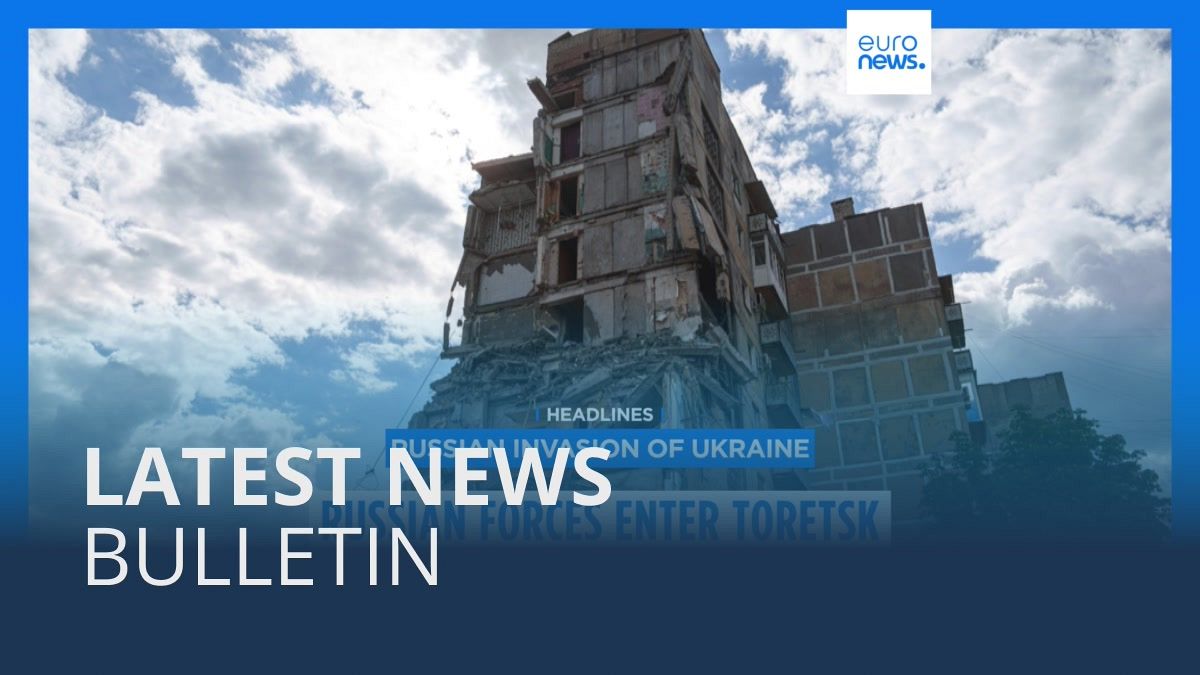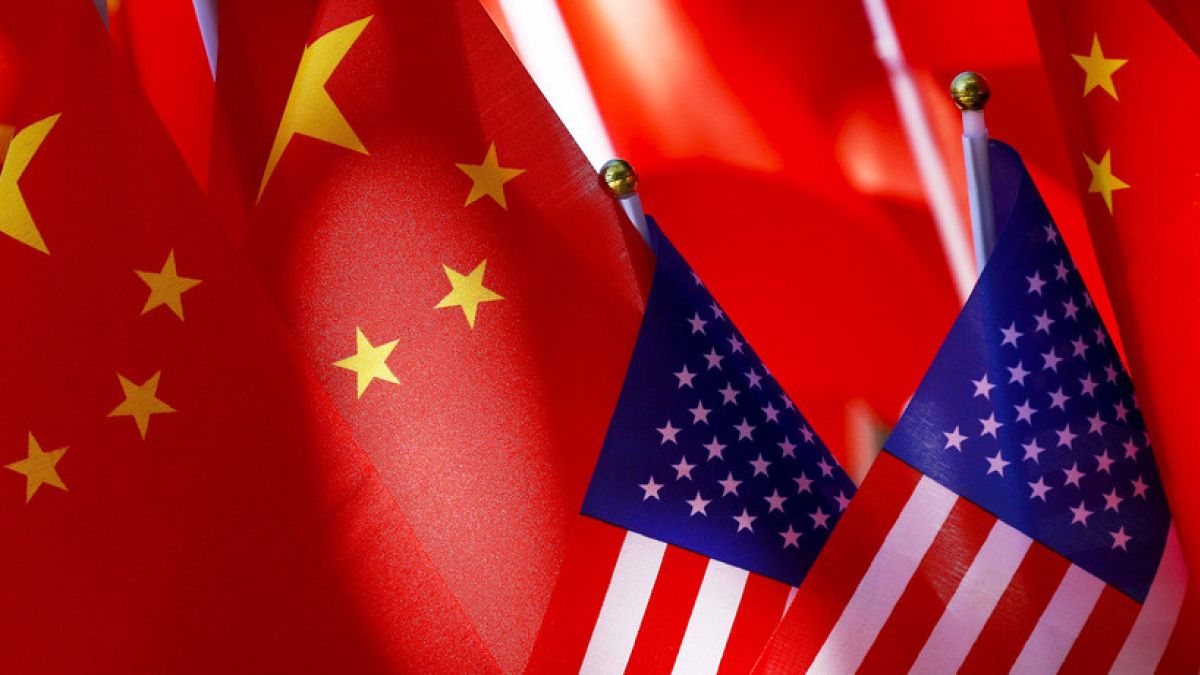Unquiet on the Eastern front: Why Brussels is losing to Moscow
In countries seeking to join the EU, the European Dream is running into the Russian fist.
BRUSSELS — In June 2022, four months after Russia launched a blitzkrieg of tanks and bombs on Ukraine, the European Union countered with the most powerful weapon in its arsenal.
As artillery rained down on Ukrainian cities and towns and refugees poured into the EU, Brussels reached into its holster and pulled out — a carrot.
EU officials announced that Ukraine and Moldova were to be allowed to begin negotiations to become part of the bloc. In December of the following year, a third former Soviet republic, Georgia, was granted the same “candidate status.”
Before Russia’s full-scale invasion, even such a distant invitation to join the club would have offered powerful encouragement to Ukrainians, Moldovans and Georgians eager for a piece of the European Dream.
These days, however, the pledge of a seat at the table is up against a far more concrete promise: the threat of Russian violence.
In Ukraine, where protesters once risked their lives to oppose the pro-Moscow government under the EU flag, a mention of the bloc’s thumbs up from the sidelines is most likely to be met with a despondent sigh. The things Kyiv needs right now — ammunition, air defense systems, real pressure on the Kremlin — are in short supply.
In Moldova and Georgia, too, two elections this week are demonstrating the fading power of the European dream.
On Sunday, Moldovans voted in a referendum on whether to lock EU integration into the country’s constitution. On Saturday, Georgians will cast their ballots in a parliamentary election featuring a ruling party widely seen as styling itself on the Kremlin.
In both cases, the votes have been cast as a choice between a future aligned with Moscow or Brussels, East or West — a decision that not long ago would have heavily favored the EU.
For Brussels, however, the early results are less than encouraging.
While polls show a sizable pro-EU majority in both countries, that sentiment isn’t showing up in the voting booth.
In Moldova, the pro-EU vote won by only the slightest of margins, dealing an unexpected blow to its pro-Western president Maia Sandu.

In Georgia, the Georgian Dream governing party, responsible for passing a raft of repressive measures that threaten to swing the country toward Moscow, is predicted to emerge with the greatest numbers of votes.
In both cases, Russian disinformation and hybrid warfare are considered to have played an important role in swaying public opinion.
Decrying the disappointing result in Moldova, President Sandu complained of “an unfair fight” against “foreign forces.”
Moldovan officials estimate Russia spent around €100 million on an influence campaign, including the buying of some 130,000 votes through a shady network of proxies supported by Moscow.
Domestic factors, pundits say, also played a role, with many Moldovans using the referendum to voice their grievances with the government.
But, together with the run-up to the election in Georgia, the vote in Moldova begs the question: At a time when Russia is flexing its hard-power muscles, can the EU still rely on its soft-power promises?
War and peace
In both Moldova and Georgia, the threat of the Russian military fist is no hypothetical. Russian troops have been stationed in Moldova’s Transnistria region since the region broke away with Moscow’s support in the 1990s. They’re also in Georgia’s Abkhazia and South Ossetia regions, following a 2008 incursion by Moscow’s troops.
But the war in Ukraine has brought the threat into even sharper focus. Neither Georgians nor Moldovans will have missed the Kremlin’s message to what it considers its backyard: Defy us at your peril.
Ahead of the elections, that fear of war coming to their homes next has been exploited by Moscow’ proxies to make voters second-guess their desire to join the EU. After all, the bloc’s promise of safety and prosperity is indirect and distant. The possibility of Russian violence is direct and real.
Neither the message, nor the way in which it has been conveyed, have been very subtle. In the capital Tbilisi, billboards for Georgian Dream juxtapose images of Georgian streets with those of bombed Ukrainian cities.

“Georgian Dream is putting out this ‘war and peace narrative’ which is shaping the information space,” said Eto Buziashvili, a research associate into influence operations at the Atlantic Council.
In Moldova, those encouraging a “no” vote in the EU referendum deployed a similar tactic, according to Dionis Cenușa, an associate expert with the Eastern Europe Studies Center: “If you don’t choose Sandu, then you’ll have peace.”
Missed information
Although the threat of war is one common trope spread by Russian-linked disinformation in both countries, it is not the only one, pundits say.
Ahead of the election in Moldova, an array of fake news on TikTok and Telegram warned that a vote for the EU would unleash all sorts of demons.
One common myth was that richer Europeans would sweep in and buy up their land. Another that Moldovan children would be subjected to so-called non-traditional values — a reference to LGBTQ+ people.
In the face of that blunt onslaught, civil society figures have called on the EU to adapt its own communication style.
In Georgia, for example, the ruling party has been “camouflaging itself as a pro-democracy, pro-EU force,” said Buziashvili. The party’s campaign banners feature the European flag and its politicians claim they are preparing Georgia for EU membership in the style of that of Viktor Orban’s Hungary.
She added that such a “deception campaign” calls for clear language and tangible measures like sanctions from Brussels.
“Protesters tell me: We know that we should do our homework in terms of protesting and defending democracy,” said Buziashvili. “But we also want to see that Western countries are serious about who they cooperate with and call things by their names.”
With real membership of the bloc still years away (at best), the EU will need to do a better job at specifying what both its sticks and its carrots entail.

Artur Gurău, a 38-year-old Moldovan volunteer who helped campaign for the EU camp, said vote-buying schemes were successful because Russia’s proxies knew to target vulnerable swathes of the population.
For some of those living in a country listed among the poorest in Europe, even a one-time payment of several dozen euros could mean the immediate difference between a cold or warm home, as opposed to the uncertain deliverables of the castle in the sky promise of one day joining the EU.
“People don’t believe anymore in promises; they don’t want a future in five or seven years,” Gurău said. “They want it now.”
What's Your Reaction?




















































